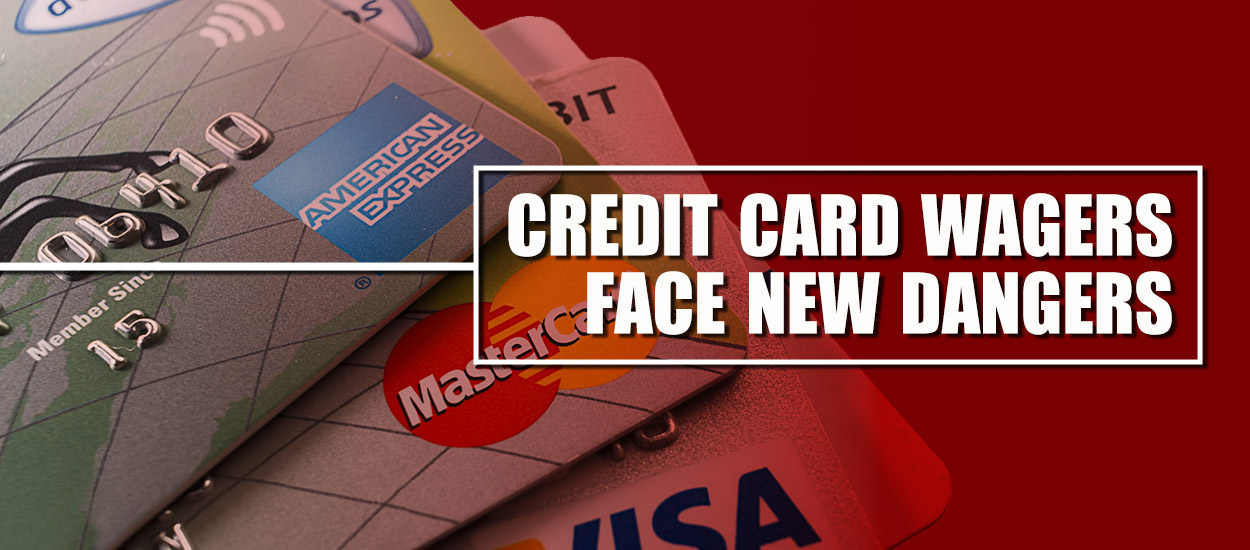In 2008 New Jersey had planned to challenge the federal sports betting law and had the written support of Governor Jon Corzine. However, when Republican Governor Chris Christie won the election that year he asked that his name be removed from the plaintiffs list saying he wasn't prepared to chase the sports betting rainbow. As well a little over a year ago Christie vetoed a bill that would have legalized online gambling in the state. The bill had already passed in the New Jersey legislature but Christie stated that he wanted a referendum first before he would consider any gambling expansion in the state. It was thus fairly clear that Christie was not prepared to associate his name with gambling expansion, most likely because he has presidential aspirations and probably believes that being seen as favoring gambling will hurt him with Republican delegates and party colleagues.
Nevertheless, when the 2010 midterm elections were held Christie stuck to his word and agreed to put the issue of expanded gambling as a referendum question on the 2010 ballot. The ballot question wasn't about online gambling but rather asked New Jersey residents whether they supported sports betting as a means to help out existing casinos and racetracks. New Jersey residents voted for the motion by a 2/3 margin and Christie signed the sports betting bill almost immediately. Christie also vowed afterwards to do whatever he needed to in order to get PASPA overturned.
After Christie signed the bill he stayed on the sidelines (probably hoping it would all be forgotten) but last week Christie announced in a press conference that New Jersey was going to offer sports betting this fall on NFL and NCAA games and dared the government and sports leagues to stop him.
If someone wants to stop us, then let them try to stop us. We want to work with the casinos and horse racing industry to get it implemented. Am I expecting there may be legal action taken against us to prevent it? Yes. But I have every confidence we're going to be successful. We intend to go forward, Christie stated.
There's little doubt that Christie's press conference was provoked by Senator Ray Lesniak's attack on him following the arrests of mob members who were offering sports betting and online gambling in New Jersey, but Christie deserves accolades anyways. Christie obviously realizes that taking on a federal law and the sports leagues will cost him a lot of delegate votes but he's put that aside and is prepared to fight for the best interest of New Jersey's residents and state coffers.
It's unlikely that Christie's tactic will work since federal courts will almost certainly issue an injunction against the state to cease and desist offering sports betting if they indeed follow through, but if Christie and the state's attorneys play their cards right they could fast track the issue to the U.S. Supreme Court which is exactly what New Jersey along with numerous other states, iMEGA and gambling lawyers want while it's precisely what the DoJ and sports leagues are trying to avoid. Without going into great detail about PASPA, in 1992 the federal government passed the law which outlawed sports betting to any state that didn't already offer the product. As such only Nevada, Oregon, Montana and Delaware were allowed to offer sports betting once the law passed. Nevada could offer single game sports betting while the others were effectively limited to a sports parlay lottery. New Jersey was given the opportunity of exempting themselves from the law as well since they were the only state that offered legalized casino gambling in Atlantic City but the state chose not to take the exemption. Fast forward to 2008 and with the economy in trouble and the horse racing and casino industries believing that sports betting would help keep their industries sustainable, New Jersey legislators changed their mind. In the words of Senator Ray Lesniak things change. They passed bill A1909 that permitted the state to offer sports betting at licensed casinos but retracted when lawyers told them that the bill would be trumped by PASPA. Consequently, the state in conjunction with iMEGA decided to challenge PASPA instead, stating that it is unconstitutional. In particular the state and iMEGA claim it violates the constitution in all of the following ways:
It violates the Commerce Clause of the United States Constitution by not uniformly regulating commerce throughout the United States.
It violates the 14th Amendment to the United States Constitution by being unconstitutionally discriminatory against the plaintiffs and the people of the State of New Jersey.
It violates the 5th Amendment to the United States Constitution by being unduly overbroad and vague.
It violates the 10th Amendment to the United States Constitution by regulating a matter that is reserved to the States.
It violates the 11th Amendment to the United States Constitution by empowering private parties, (namely sports organizations) to enforce its provisions over other states.
It violates the first amendment by trying to prohibit the state from raising revenues for the treasury.
Numerous lawyers have suggested that the argument that it violates the commerce clause won't hold water because there is no law that requires the federal government to treat states equally but there is no question that many of the Supreme Court justices would be very uncomfortable stating so. After all the whole premise of U.S. democracy is based on equality so saying some states are more preferred than others will almost certainly leave a bad taste in their mouths. Furthermore in 2010 Senators in Rhode Island, Iowa, Missouri and California indicated they are interested in offering sports betting and if New Jersey is successful then New York would be compelled to offer the product as well to help its beleaguered horse racing industry. The same lawyers, however, have agreed that the other arguments have merit and particularly the 10th amendment since gambling has always been a state issue in U.S. history.
Ironically, when PASPA (originally known as the Bradley bill) passed in 1992 the DoJ at the time stated an objection to the law because they believed themselves that the law was unconstitutional and would be successfully challenged in the future so no doubt that will be highlighted in the courts also.
It has been noted that Delaware tried to offer single game sports betting in 2009 and the sports leagues challenged the motion saying that Delaware should be limited to what they offered prior to PASPA which meant they should only be allowed to offer parlays of 3 games or more. The Third Judicial Circuit agreed with the sports leagues and the Court of Appeals for the Third Judicial Circuit upheld the decision. New Jersey belongs to the same Judicial Circuit so logic says that the Third Judicial Circuit will agree with the leagues in this case as well. The difference of course is that Delaware believed that any sports betting is better than none so were happy to offer the 3 game parlay cards at the racetracks and really didn't want to appeal any higher for fear of losing what they were given. New Jersey, on the other hand, has never offered sports betting so the only decision the Third Judicial Court can come to is to either allow the state to offer sports betting or to rule that New Jersey isn't allowed to offer any sports betting products. If that happens then New Jersey has every reason to appeal the decision all the way up to the U.S. Supreme Court. After all, unlike Delaware New Jersey has nothing to lose.
Many lawyers are also very uncomfortable with the fact that sports leagues are able to influence state decisions in an effort to protect their own industry. PASPA was introduced almost exclusively at the bequest of the NCAA and NBA who asked that the harmful act of gambling on sports be stopped in its tracks. Consequently arguments were heard at the Senate Judiciary Subcommittee on Patents, Copyrights and Trademarks and eventually Congress voted in favor of the bill. But gambling really has nothing to do with copyrights and trademarks so one has to wonder why the sports leagues have any say in the matter. After all car companies can't dictate motor vehicle laws in the United States; Pharmaceutical companies have no say regarding FDA regulations; Farmers can't dictate how the corn they grow and sell is used by Americans or what laws are passed regarding food safety issues etc. So why should sports leagues have any say over laws that relate to gambling whether it involves their product or not? If someone is illegally copying their trademarked merchandise or is illegally reproducing copyrighted material that's one thing but they should have no influence on state gambling laws as in all honesty it's none of their business. So the high court will also have to consider that and ask whether any lawsuit filed by the leagues against the state(s) isn't indeed a violation of the 11th amendment.
Thus, Christie deserves credit for getting off the pot and supporting his legislators' and citizens' demands to offer sports betting. It no doubt wasn't an easy decision and is one that he will receive some consternation for, particularly since Mitt Romney announced that he opposes any expansion of gambling. But the small amount of support Christie will lose from some members of the Republican Party will be gained by voters who will support him for standing up for the best interests of his state. And if and when the issue does get to the Supreme Court it will be hard for the justices to uphold a law that is possibly unconstitutional and is certainly hypocritical and unfair.







































